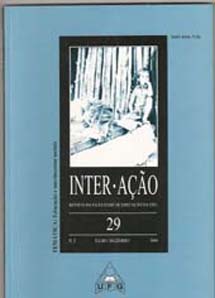ACESSO AO ENSINO SUPERIOR: ESTUDO DE CASO SOBRE CARACTERÍSTICAS DE ALUNOS DO ENSINO SUPERIOR PRIVADO
DOI:
https://doi.org/10.5216/ia.v29i2.1416Abstract
A questão central que orienta o fluxo desta investigação relaciona-se com o estudo do perfil socioeconômico e cultural dos estudantes da Faculdade Social da Bahia (FSBA), num contexto de expansão do ensino superior e de acesso a este nível de ensino. Com efeito, procurou-se traçar o perfil desses alunos fazendo um estudo comparativo com os da Universidade Federal da Bahia (UFBA), o Nordeste e o Brasil, a partir de algumas variáveis demográficas como idade, cor, sexo, renda, escolaridade dos pais, escola básica de origem e colégio do ensino médio, analisando comparativamente o perfil dos alunos em relação aos turnos e aos cursos da FSBA e verificar o efeito dessas variáveis sobre o desempenho desses mesmos estudantes através do exame dos resultados do estibular e o rendimento no curso.Downloads
Downloads
Published
How to Cite
Issue
Section
License
Inter-Ação uses the Creative Commons Attribution 4.0 License for Open Access Journals (Open Archives Initiative - OAI) as the basis for the transfer of rights. Open access means making documents available on the Internet free of charge, so that users can read, download, copy, distribute, print, search, or link to the full text of documents, process them for indexing, use them as input data for software programs, or use them for any other lawful purpose, without financial, legal, or technical barriers.
Authors publishing in this journal agree to the following conditions:
1) Authors retain copyright and grant the journal the right of first publication, with the work simultaneously licensed under the Creative Commons Attribution License, which permits redistribution of the work with attribution and first publication in this journal.
2) Authors are permitted to enter into additional, separate agreements for non-exclusive distribution of the version of the work published in this journal (e.g., for publication in an institutional repository or as a book chapter), with attribution and first publication in this journal.
3) Authors are permitted and encouraged to publish and distribute their work online (e.g. in institutional repositories or on their home page) at any time before or during the editorial process, as this may generate productive changes as well as increase the impact and citation of the published work.















